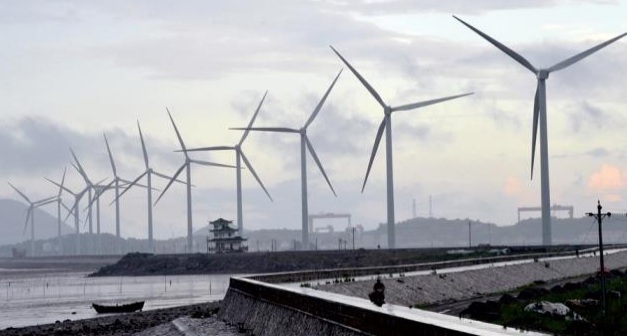
Author: Joshua Riddiford, Energynews.
The rapid “greening” of the Chinese economy may continue to help drive down the manufacturing costs of renewable energy technologies, a visiting academic says.
Wind, solar, battery and electric vehicle technology have seen cost reductions “because, as the market expands, so the efficiencies improve and the costs come down and the more the costs come down the more the market expands and this is a virtuous circle,” professor John Mathews told a Business NZ Energy Council meeting in Wellington last Friday.
China’s greening is partly motivated by its rapid industrialisation and a desire to “build a huge energy system that will drive that manufacturing system,” says Mathews, based at the Macquarie Graduate School of Management in Sydney.
The manufacturing “learning curve” associated with falling costs also creates opportunities for its move to a “circular” economy rather than a “linear” one, in which items were produced and then dumped at the end of their life-cycle.
In a circular economy manufacturing outputs such as copper are”re-circulated” as inputs for the production of renewable technologies such as wind turbines.
Mathews suggested New Zealand should adopt these approaches in order to remain competitive – especially in adopting innovative energy and waste-recovery technologies alongside its export-focused primary sectors.
Investment driven shift
He says China is at the centre of the global green shift. Unlike other countries, which have made rhetorical commitments to “greening” their economies, China has followed up its emissions announcements with investment.
That is important because China is the big force in driving a shift which saw non-OECD countries’ manufacturing levels approach that of OECD countries in 2013.
Mathews says that “in terms of manufacturing, we are living in a sino-centric world.”
He also cited China’s recently announced intention to ban the sale of internal combustion vehicles. Chinese state media recently reported that the country’s Ministry of Industry and Information Technology was formulating a timetable to end their production and sale.
China is not the only country to make such an announcement. Vox.com reported earlier this month that the Netherlands,India, Norway, France and Britain have all announced policies phasing out the sale of internal combustion vehicles. Policy deadlines vary between 2025 and 2040.
Securing supply
Mathews says China’s rapid industrialisation, which had occurred much more quickly than the process in previously developed countries, had placed a strain on the country’s security of resource and fuel supply. That helped force it towards renewable investment.
That green shift was important because the country faced geo-political limits since it had to import fossil fuels from “hotspots” such as the South Sudan.
Mathews says China had been the biggest purchaser of South Sudanese oil before a civil war, still ongoing, broke out in that country in 2013.
Oil production there and in other geo-political hotspots such as Nigeria meant that China was ultimately “constrained” towards following the renewables strategy, he says.
“China has few options but to go green.”
Mathews’ data shows China produced almost 3.5 billion tonnes of coal in 2016 and its continued reliance on that production means it will remain a”black economy” for some time – but the country is investing about as heavily in wind, hydro and solar energy going forward, he says.
The country’s wind, hydro and solar energy production had increased from less than 21 per cent of total generation in 2007 to more than 33 per cent in 2016, according to data he displayed in a graph accompanying his presentation.
Twilight technology
Mathews says China’s development started with fossil fuels, but it was now the “twilight era” of that technology.
He also says there is “no reason” for New Zealand to burn any coal org as within its power generation system. New Zealand should be completing the”revolution” with hydro and geothermal, wind and solar within the next 10 years.
The falling costs of solar and batteries mean they will become prevalent, despite what those in the energy industry want, he says.
Mathews says moves, such as China’s announced intention to establish a timetable to ban the sale and production of gas and diesel vehicles, mean fossil fuel investments risk becoming “stranded assets”. Investors in those traditionally safe industries might see green investments as safer options in the future.
Financial instruments such as “green bonds” can help fund the production of that global renewable transition.
Mathews cited the Export and Import Bank of Korea raising USD $500 million in 2013 through the issuance of a five-year green bond as a successful example.
Contact: Joshua Riddiford
Email:
